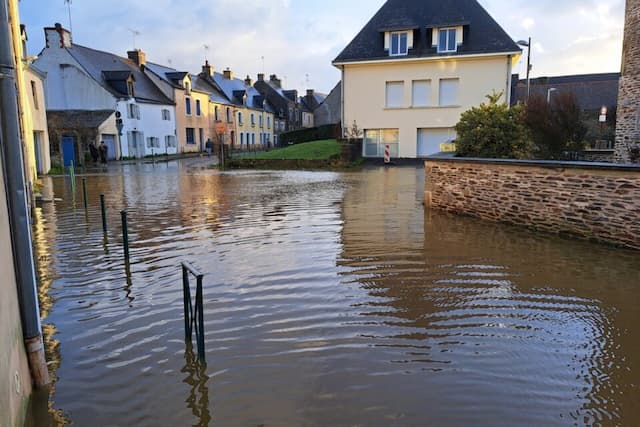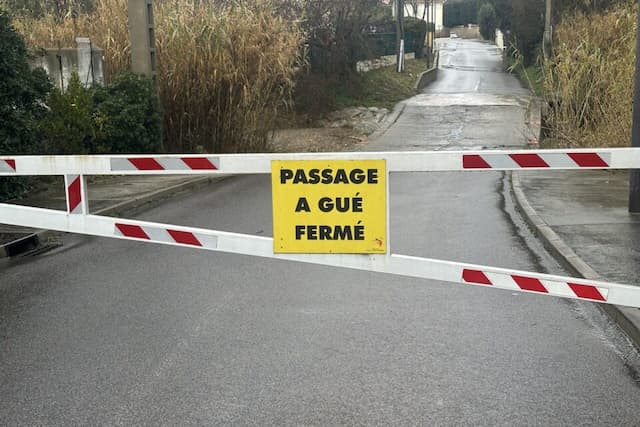Deconfinement: Back to School, “A Success” According to the President of Normandy

The president of Normandy Christine Gavini-Chevet returned to the start of the new schools and colleges after the deconfinement, during a press conference Friday 15th May 2020.
Since May 11th, 2020, and the start of deconfinement, the gradual resumption of lessons has taken place in schools in Normandy. “This recovery of students is really a success,” said Christine Gavini-Chevet, rector of the Normandy academic region during a press conference at the prefecture of Rouen ( Seine-Maritime ), Friday, May 15, 2020.
All is for the best, to hear it, in the majority of the 2,143 schools which carried out their return, that is to say 85% of the schools of the area. “We will reach 99% with a progressive reopening in the coming days, until that of the municipality of Rouen on May 25th . “In some cases, however, reopening remains impossible,” most of the time for technical problems related to work in progress, the narrowness of the premises or the impossibility of cleaning them “.
Read also: Suspected case of Covid-19 in a school in Fécamp: back to school disrupted
Very different systems depending on the municipality
58,100 students resumed their course in this first week, or 21% of the total enrollment, “knowing that we do not welcome all levels,” said the rector. 1,514 pupils, children of priority staff, are still welcomed as during confinement. The task was transferred to the departmental direction of social cohesion (DDCS), which put its agents at the service of this reception.
Like the pupils, the teachers resumed lessons. Except those with the most fragile profiles, who live with vulnerable people or who have no childcare solution; they continue their work remotely, as in previous weeks.
The National Education teams and the mayors organized themselves in a specific way, each setting up different systems adapted to the constraints of each establishment and territory. Schools open every day, some two days a week, others half-day for example. Some have also chosen to host only the three priority levels defined by the government, others like the mayor of Caen (Calvados), have opened the courses for all levels.
“The teachers, school directors and district inspectors did a fantastic job alongside the mayors with formats that were really suitable, congratulates Christine Gavini-Chevet. We have a very large range of possibilities. “
Strong educational challenges
Young people had to face constraints, especially those of distancing. “There is a good adaptation,” said the rector. Initiatives, such as markings on the ground or the transformation of the rules into games, promote respect for the rules. Preserving the playful dimension in a potentially anxiety-provoking context for children is a challenge for educational teams.
In terms of health and support, according to the rector “all the schools have received masks” and “the teachers have been trained for one hour on all the measures of the protocol”. Training courses have been carried out by school doctors and nurses for educational teams. Children also have the right to exchange time to reflect on their experience of confinement. They make it possible to highlight the difficulties experienced during confinement, whether in terms of family or learning for example and to orient young people to the right contacts if necessary.
Sport, health, culture and civic-mindedness systems (2S2C) are also set up to welcome children at other times. “We feel the need for our students to go to sports activities, but also to have information on health, what a virus is, how it spreads. Cultural visits are also organized with the collaboration of the municipalities.
Search for dropouts one by one
On the educational level, the main objective set for staff is the consolidation of skills. The Rector realizes “that it is impossible to finish the programs”. “We asked the teachers to provide the minimum baggage to go to the next class. Another major priority is the fight against dropping out of school. The latter reaches 2 to 4% for the first degree and “a little more in the second degree”.
“There are students who have not reacted to others who have been lost to sight,” reports the rector. We are very attentive to their fate. She fears “dramatic” consequences in terms of loss of learning on reading and writing in particular, after six months without school in the first degree. The academy promises to go “to find dropouts one by one”. From the second week of deconfinement, work will be started to return to families, “especially those in priority education networks”, and to bring back dropouts to school.
The carers of children with disabilities and the Ulys class coordinators – where all the students have not returned – have received instructions to include these students in this recovery. “The objective is not that the student adapts to the school, but quite the opposite. »Teams are put in place to help those unable to respect barrier gestures to be able to follow their lessons.
Resumption of colleges: “We are ready”
The next deconfinement challenge will be the start of the new school year, scheduled for Monday, May 18. “We are ready,” says Christine Gavini-Chevet. There is a very strong commitment of the leaders and the five departments that have ensured that all colleges can open their doors for students in 5 th and 6 th . Only three establishments will not be able to reopen, “two for reasons of work” and one last because “the fire alarm has broken down”.
About 40% of students are expected next week.
Enjoyed this? Get the week’s top France stories
One email every Sunday. Unsubscribe anytime.


